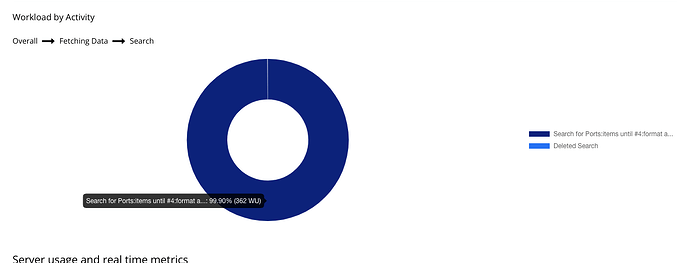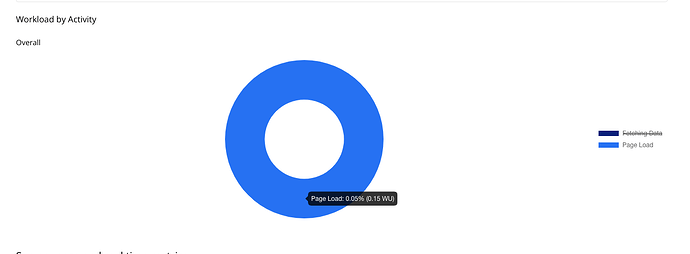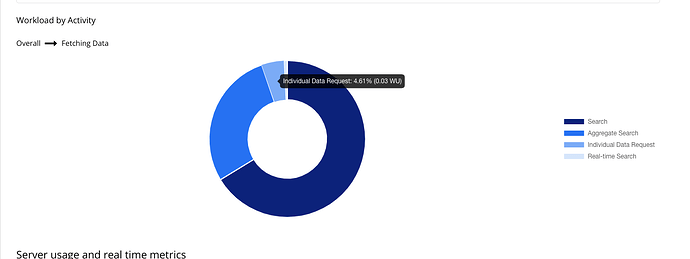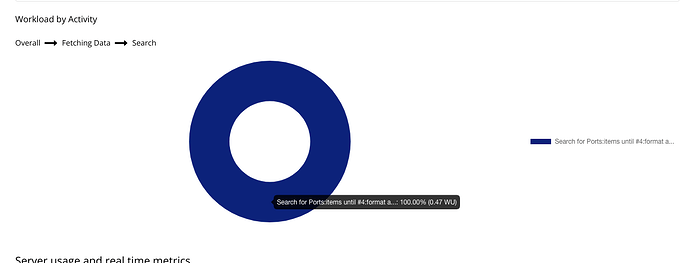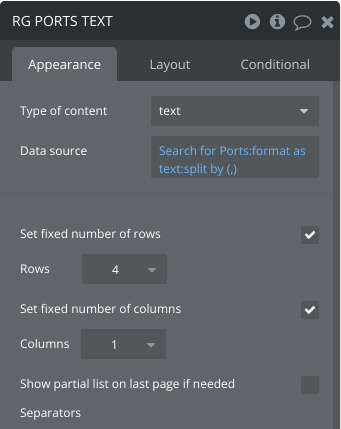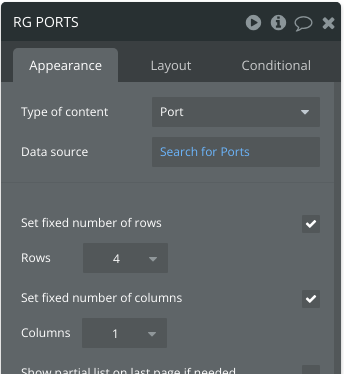In an attempt to make sure I fully understand the Bubble WU metrics, I’m taking a bit of a deep dive and doing some simplistic tests.
I ran this test twice so far and see dramatically different WU charges for the same things, while also seeing that some of the things are not getting charged consistently, but should be.
First test ran had the following setup

The WU metrics tab showed the following charges
The deleted search in the screen shot above is the search for Ports…The reason it shows as deleted is that in my testing, from the page, I deleted the container group…I afterward pressed the Undo Button. Unfortunately, that uncovers another bug, which is that the ‘Deleted Search’ should not be shown as a deleted search in the metrics tab anymore, since it was basically ‘undeleted’, but I digress.
So, in the subsequent test, I had to do because the first results shown above confused me a bit, since the search for Ports was only 0.37 WUs but the search for Ports items until #4 was 362 WUs…That search of Ports items until #4, was not actually structured that way at the time I ran and got those results, it was simply searching for Ports in an RG with Fixed # of Rows at 4, so it made sense that the system would charge 362 WUs as it fetched 40,000+ entries and converted to text. After seeing that I changed it so it was items until #4, which dramatically reduced the number of results returned (ie: only 4).
Now, testing again, after making the alteration to the RG for text based, using the items until #4, I see very different results.
Now, my search for Ports is costing 56.24 WUs instead of the 0.37 WUs it previously cost…I made no changes to that RG and search, the changes were made to the RG with text of items until #4…so Why would the cost of the same search be 152x more expensive?
Also, I see no WUs charged for the text based RG with items until #4
Adding to confusion, a test ran prior to this had a dramatically different result as well, I was charged 298 WUs for the same search…and yes, these numbers are for a single search, as I checked against the page load metric
I’m continuing to run these same tests in a hope of uncovering what is the reason for such dramatically different charges for the same search, on the same page, performed at different times (like 10 minutes apart)






